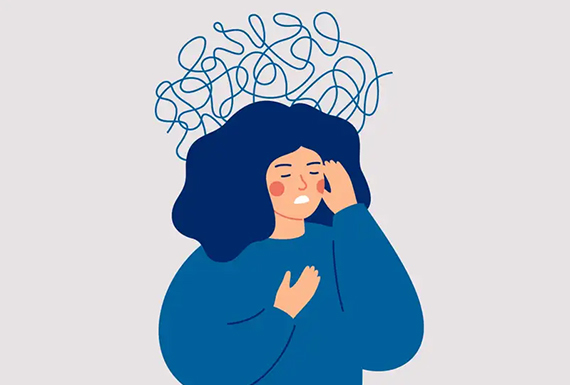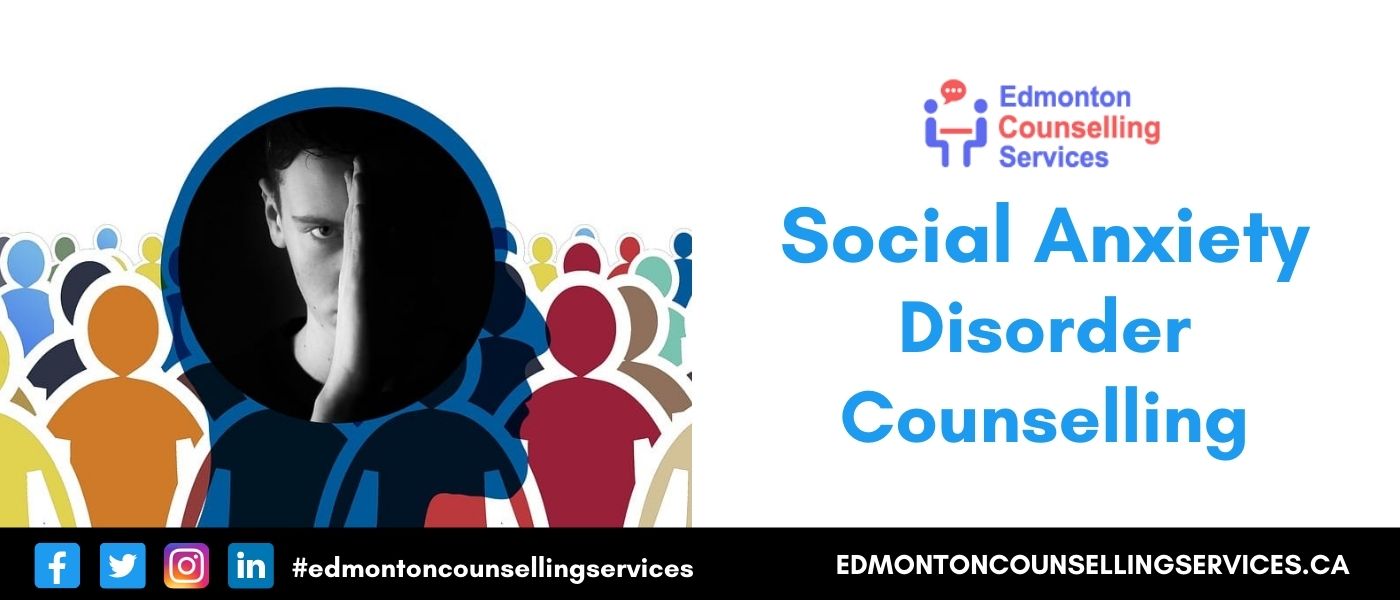Discovering Various Techniques in Coaching for Stress And Anxiety Condition for Lasting Adjustment
When taking on anxiety problems, it's important to explore a selection of therapy techniques. Each method uses one-of-a-kind insights and devices to aid you manage your signs and symptoms successfully. You may discover that incorporating strategies can yield the very best outcomes. Comprehending the nuances of these methods is essential to fostering long lasting adjustment. What if the right combination could launch a new level of emotional wellness for you?
Comprehending Anxiety Problems: A Quick Overview
Anxiety problems, which influence countless people worldwide, can considerably influence day-to-day live. You might experience frustrating sensations of concern or stress that seem uncontrollable. These sensations can bring about physical signs and symptoms like a racing heart, sweating, or even lightheadedness. Typical kinds of anxiety problems consist of generalized anxiety condition, panic attack, and social stress and anxiety problem. Each has special indicators, yet they all share a tendency to interrupt your routine and relationships.Understanding the origin creates of your stress and anxiety is vital. It might come from genetics, mind chemistry, or life experiences. Recognizing your triggers can help you manage your actions better. It's essential to keep in mind that you're not the only one in this struggle. Lots of people face similar difficulties, and seeking assistance is a strong step toward feeling better. By learning concerning anxiousness problems, you're already on the path to understanding and handling your problem better.
Cognitive-Behavioral Treatment: Testing Adverse Thought Patterns
In Cognitive-Behavioral Therapy, you'll start by identifying the adverse idea causes that contribute to your stress and anxiety. When you recognize these thoughts, you'll deal with replacing them with more positive alternatives. Together, you'll build effective coping techniques to help handle your anxiousness in daily scenarios.
Determining Adverse Thought Triggers

Acknowledging the details triggers behind your negative ideas can be necessary in taking care of anxiety when you run into minutes of distress. Begin by focusing on situations that provoke sensations of worry or worry. Is it a crowded space, a forthcoming target date, or a conversation with particular individuals? Take down these instances in a journal. This will aid you recognize patterns in your thinking. Notice physical sensations that accompany your unfavorable ideas, like an auto racing heart or tightness in your upper body. By pinpointing these triggers, you obtain insight into what's sustaining your anxiety. Comprehending these links is the initial step in testing those ideas and eventually gaining back control over your emotional responses.
Replacing Ideas With Positives
Testing adverse thought patterns is a crucial action in changing your frame of mind and reducing anxiousness. You may usually discover on your own caught in cycles of self-doubt or catastrophic reasoning. As opposed to letting these ideas determine your sensations, practice changing them with positive affirmations or practical choices. For instance, when you believe, "I can't handle this," move it to, "I can take care of challenges one step each time." This basic modification can considerably affect your emotional state. Regularly recognizing and countering these negative thoughts assists develop a healthier internal dialogue. Remember, it takes some time and effort, however regularly exercising this technique can cause long-term adjustment, encouraging you to encounter stress and anxiety with renewed confidence and strength.
Building Coping Techniques Together
Changing negative thoughts is just the beginning of managing anxiety effectively. To produce enduring change, you require to construct coping techniques that empower you. Cognitive-Behavioral Treatment (CBT) aids you determine and test those purposeless idea patterns. With each other, you and your therapist can check out just how these thoughts effect your sensations and behaviors.Start by creating functional strategies, like journaling or mindfulness workouts, that permit you to face anxiousness head-on. When you encounter your worries slowly, you'll discover to respond in different ways.

Mindfulness and Acceptance-Based Approaches: Cultivating Present-Moment Recognition
As you navigate the intricacies of anxiety, including mindfulness and acceptance-based approaches can considerably enhance your ability to cultivate present-moment awareness. By concentrating on the here and currently, you'll locate that you can observe your thoughts and feelings without judgment (Counseling services for anxiety). This practice helps you acknowledge your stress and anxiety without feeling bewildered by it.Engaging in mindfulness exercises, such as deep breathing, body scans, or guided meditations, enables you to ground yourself in your existing experience. Acceptance-based methods encourage you to embrace your feelings rather than fight against them. They lose their power over you.Incorporating these methods right into your daily regimen can transform just how you react to anxiousness when you accept your sensations. You'll create strength and find out to navigate difficult circumstances with greater ease. Inevitably, growing present-moment understanding lays the structure for lasting change, empowering you to lead a more satisfying life
Direct Exposure Treatment: Challenging Worries Gradually
Exposure therapy helps you confront your anxieties in a gradual means, making it less overwhelming. You'll discover techniques to face anxiety-provoking situations step by step, while likewise constructing coping techniques to manage your responses. This strategy encourages you to take control and decrease anxiety over time.
Progressive Direct Exposure Methods

When facing anxiousness, progressively confronting your concerns can be a powerful means to regain control. This technique, known as steady direct exposure, entails slowly subjecting on your own to the situations or items that trigger your stress and anxiety. Beginning with much less daunting circumstances and gradually work your way as much as more challenging ones. As an example, if you're afraid of public talking, you could begin by speaking before a mirror, then progress to sharing thoughts with a close friend, and eventually deal with a little team. Each step aids desensitize you to the worry, constructing your confidence gradually. Bear in mind, it's necessary to speed yourself and celebrate tiny victories as you move through this procedure, reinforcing your capability to manage anxiousness properly.
Building Coping Methods
Building effective coping strategies is crucial for taking care of anxiety, specifically as you face your worries slowly - Counseling services for anxiety. One powerful technique is exposure therapy, where you start by facing your fears in a regulated way. Begin with much less intimidating situations and gradually work your method approximately more tough scenarios. This gradual exposure helps desensitize you to anxiety activates, making them less overwhelming.Incorporate leisure techniques, such as deep breathing or mindfulness, to relax your mind throughout exposure. Track your progression, commemorating small triumphes along the road to improve your self-confidence. Remember, it's alright to take your time; the objective isn't perfection however constant renovation. By developing these approaches, you'll equip on your own to navigate stress and anxiety and welcome life much more completely
Psychodynamic Treatment: Discovering Origin of Anxiousness
Psychodynamic therapy explores the subconscious mind, disclosing the source of your anxiousness. By analyzing your ideas, feelings, and previous experiences, this method aids you discover underlying disputes and unsettled concerns that might contribute read more to your existing stress and anxiety. You'll collaborate with a therapist to explore childhood years experiences, relationships, and psychological patterns that form your reactions today.As you get understanding right into these deeper layers of your subconscious, you'll start to acknowledge just how past occasions affect your present habits. This understanding can bring about catharsis, permitting you to refine emotions you could have suppressed.Through the therapeutic connection, you can likewise determine defense mechanisms that might have created over time, supplying a more clear path to transform. Eventually, psychodynamic therapy furnishes you with the tools to address your anxiety at its core, advertising lasting improvement in your psychological health.
Integrative and Holistic Techniques: Integrating Techniques for Greater Effectiveness
Integrating numerous healing methods can enhance your trip toward managing anxiousness more successfully. By integrating elements from cognitive-behavioral treatment, mindfulness methods, and holistic approaches, you can develop a customized method that addresses your distinct requirements. For instance, you might use cognitive-behavioral strategies to challenge adverse idea patterns while integrating mindfulness workouts to ground yourself in the present moment.Additionally, discovering all natural techniques such as yoga or reflection can promote leisure and minimize anxiety symptoms. This mix permits you to establish greater self-awareness and resilience.Experimenting with these diverse methods can aid you uncover what resonates most with you. Remember, it has to do with finding a synergy that functions, as opposed to adhering to a single approach. This integrative technique not just supplies prompt relief yet also cultivates long-term skills for managing anxiety, empowering you to reclaim control over your life.
The Function of Support Solutions: Building Durability Through Connection
While it could seem that managing anxiety is a solitary trip, having a strong support group can play a crucial role in your resilience. Bordering on your own with empathetic close friends, family members, or support teams develops a risk-free room where you can honestly share your experiences and sensations. When you get in touch with others, you advise yourself that you're not the only one in this struggle.These connections provide motivation and can offer sensible coping strategies that have actually helped others. It's additionally a possibility to gain viewpoint; friends can aid you see situations differently, decreasing feelings of isolation.Moreover, emotional support promotes a feeling of belonging, which can considerably minimize anxiety signs and symptoms. By leaning on your support system, you can build durability and tackle challenges a lot more efficiently. Remember, connecting for assistance is an indication of toughness, and it can make all the difference in your trip towards handling stress and anxiety.
Often Asked Questions
What Are the Typical Symptoms of Anxiety Conditions?
You could experience restlessness, fatigue, trouble focusing, irritability, muscle tension, and rest disruptions. Physical signs and symptoms can include rapid heart beat, sweating, and trembling. Identifying these signs early can aid you seek proper support and treatment.
Exactly How Lengthy Does Therapy Usually Last for Anxiety Problems?
Treatment for stress and anxiety problems normally lasts anywhere from a few weeks to several months. It actually depends on your private requirements, progression, and the strategies your specialist makes use of to assist you manage your anxiousness effectively.
Can Medication Be Used Alongside Therapy for Stress and anxiety?
Yes, medicine can most definitely be utilized along with therapy for anxiety. Combining both techniques often improves therapy effectiveness, assisting you handle symptoms while exploring underlying concerns with counseling (Counseling services for anxiety). Always consult your health care supplier for individualized suggestions
Are There Self-Help Techniques for Managing Anxiousness?
Yes, there are numerous self-help techniques for managing stress and anxiety. You can exercise mindfulness, engage in normal workout, preserve a balanced diet, develop a routine, and make use of deep breathing techniques to help in reducing stress and anxiety signs successfully.
Exactly how Do I Know if I Need Expert Aid for Stress And Anxiety?
